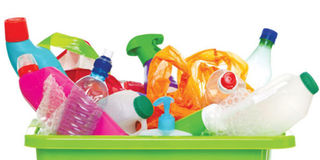Tests find high levels of banned toxic chemicals in plastic toys, utensils in Kenya

Lab tests have found high levels of banned toxins in toys, kitchenware and other consumer products made from recycled plastic.
Independent laboratory tests have found high levels of toxic substances banned under international agreements in toys, kitchen utensils and other consumer products made from recycled plastics.
In a new report released by Arnika, a Czech-based NGO, and Ipen, the testing of the products bought in Kenya and 10 other African and Arab countries showed that 61 products contained levels of brominated flame retardants (BFRs) above the protective limits called persistent organic pollutants (POPs) proposed by African countries for defining hazardous waste under the Basel Convention.
Ipen is a global environmental and toxic waste network with more than 600 public interest organisations in more than 120 countries that are largely low- and middle-income, including Kenya,
According to the United Nations Environment Programme (Unep), due to their toxicity and persistence, several families of BFRs have been listed as POPs in the Stockholm Convention, a multilateral treaty overseen by Unep.
The treaty mandates that parties who have signed must take administrative and legislative actions to prevent the environmental impacts that POPs pose, both within their jurisdictions and in the global environment.
The specific BFRs listed in the Stockholm Convention are Polybrominated Diphenyl Ethers (PBDEs), Hexabromocyclododecane (HBCDD), and Hexabromobiphenyl (HBB), chemicals that must be heavily restricted within the jurisdictions of the signatories.
However, according to the lab tests, many toys and other products made from recycled plastics contain dioxins at levels equivalent to hazardous waste, as experts disclosed that they bought a total of 434 black plastic toys, hair accessories, kitchen utensils and other products from 11 countries, namely Burkina Faso, Cameroon, Egypt, Ethiopia, Gabon, Jordan, Kenya, Morocco, Syria, Tanzania, and Tunisia.
The lab results showed that BFRs, which are banned POPs under the Stockholm Convention, can be found in consumer products from markets in Africa and Arabia, and that many products contain dangerously high concentrations of these and other harmful chemicals.
“The testing demonstrated that products purchased in Kenya made from recycled plastic contain highly toxic chemicals and revealed that, if these products had been made of virgin plastics rather than recycled materials, 14 of them would exceed the European Union (EU)safety standards.
The results showed that 17 samples contained the BFR decabromodiphenyl ether (DecaBDE) at concentrations ranging from 0.2 ppm to 243ppm (10 ppm is the EU safety limit for virgin plastics), while 16 samples contained the BFR octabromodiphenyl ether (OctaBDE) at concentrations ranging from 2ppm to 149 ppm,” the report highlights.
The findings further show that across all 18 samples, there were six novel BFRs found at concentrations ranging from 0.2 ppm to 412 ppm while tetrabromobisphenol A (TBBPA), which is the most widely used BFR, was found at concentrations ranging from 0.3 ppm to 980 ppm, in 16 out of the 18 samples.
The products were then screened for chemical markers of brominated flame retardants and found 18 products that contained the markers, suggesting the plastic included BFRs.
A toy-car was tested for brominated dioxins and was found to contain 6,590pg TEQ/g, a level much higher than concentrations observed, for example, in waste incineration ashes, thus confirming that these highly toxic dioxins are in recycled plastic consumer products.
This is why the environmental groups are now calling for strict limits on toxic chemicals in waste as proposed by African countries in the Basel Convention.
Speaking to the Nation in an exclusive interview, Mr Griffins Ochieng, the executive director at the Centre for Environment Justice and Development explained that brominated flame retardants and dioxins are highly toxic chemicals that have no place in children’s toys or our homes.
“Dozens of studies have linked these chemicals to cancer, harm to children’s brain development, infertility and other serious health problems.”
“Our findings show how plastic can poison the circular economy and demonstrate the urgent need for stricter persistent organic pollutants (POPs) limits globally to ensure that these dangerous chemicals do not contaminate the recycling chain,” said Semia Gharbi, a university lecturer in Tunis and the leader of the Association of Environmental Education for Futer Generations (AEEFG).
“There are currently no official limits on the content of BFRs in products or waste in the African and Arabic countries,” Mr Ochieng told the Nation.
However, the African region has advocated stricter limits for PBDEs and polybrominated biphenyls (PBBs), which belong to a class of chemicals that are added to certain manufactured products to reduce the chances that the products will catch fire under the Basel Convention to stop imports of hazardous PBDE-containing e-waste into their countries and to end recycling of waste into new products.
“Africa has become a destination of illegal toxic waste exports and, as this study shows, toxic chemicals are also present in toys, kitchen utensils, and other consumer products sold at African and Arabic region markets,” said Mr Gilbert Kuepouo, the lead at the Centre for Research and Education for Development (Crepd), an NGO in Cameroon.





